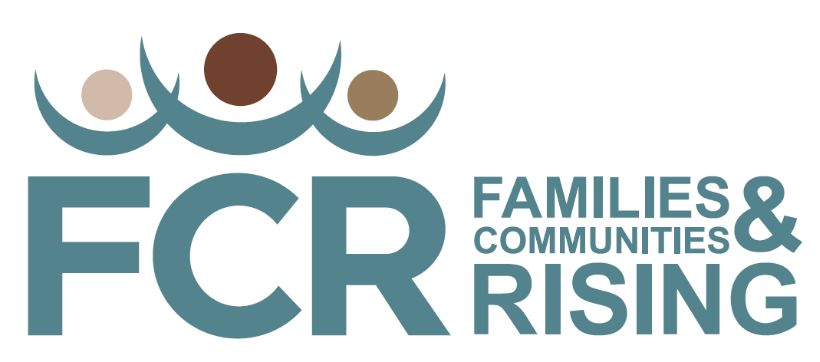
FRIENDS National Center for CBCAP
Child Abuse Prevention: The Role of FRIENDS National Center for Community-Based Child Abuse Prevention
Established in 1995, the FRIENDS National Center for Community-Based Child Abuse Prevention (FRIENDS) provides training and technical assistance (TTA) services to the Community-Based Child Abuse Prevention (CBCAP) community through the 50 State Lead Agencies, the District of Columbia, Puerto Rico, and three Tribal and Migrant grantees. FRIENDS is funded under a Cooperative Agreement with the Children’s Bureau and supports the requirements of Title II of the Child Abuse Prevention and Treatment Act (CAPTA). For more information about the Children’s Bureau, please visit https://www.acf.hhs.gov/cb.
FRIENDS is a program of Families and Communities Rising, Inc. (FCR) in Durham, North Carolina and supports primary and secondary prevention services through a coordinated effort with other national organizations, to prevent child abuse and neglect and support families and communities. Services are provided to the public interested in child abuse prevention through our website and online learning center. A network of partners and consultants allow us to offer cutting edge TTA to the CBCAP community from leaders in prevention and family support.
Understanding CBCAP: Building Safer Communities
CBCAP funding supports a range of programs across the country through State Lead Agencies and Tribal and Migrant grantees that disperse funds to local programs that serve families. Lead agencies implement awareness raising campaigns, develop and implement strategic plans, and engage with parents as leaders of their families and communities, while providing support to their locally funded programs. CBCAP legislation outlines the types of services that can be funded, emphasizing work with the public and vulnerable families who may be at risk of abuse or neglect. Program outreach includes parents of all backgrounds, families with children with disabilities, underserved racial and ethnic groups, fathers, homeless families and those at-risk of homelessness, adult survivors of abuse or domestic violence, and other underrepresented groups. CBCAP programs are pivotal in creating a safer environment for children and families.
The Essence of Community-Based Child Abuse Prevention
Examples of CBCAP programs funded by State Lead Agencies and Tribal and Migrant grantees are public awareness campaigns, home visiting programs for new parents, family resource centers, parent support groups, public education activities, and respite care. Primary prevention provides support to the public and secondary prevention services generally focus on vulnerable populations or individuals. This can include people with substance misuse disorder, teen parents, underserved people of color, and those who identify as LGBTQ+.
Primary and secondary prevention are allowable activities using CBCAP funds. Tertiary, or child protection activities, are not funded by CBCAP.
Our Services
FRIENDS plays a crucial role in empowering CBCAP State Lead Agencies, local grantees, and Tribal and Migrant grantees to meet the requirements of Title II of the Child Abuse Prevention and Treatment Act. It does so by offering a spectrum of services designed to enhance their capacity, including universal, specialized, and tailored capacity-building Services.
Additional Offerings by FRIENDS
For more comprehensive information and assistance, please visit the FRIENDS National Center for Community‐Based Child Abuse Prevention (CBCAP) website at www.friendsnrc.org



